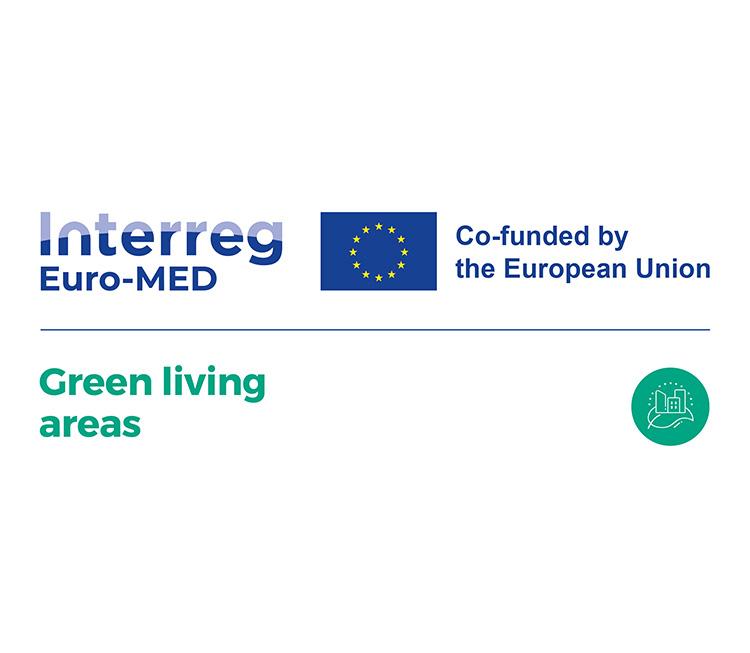
Project title: Community4LivingAreas_C4LA
Project duration: 2023-2029
Financing: The C4LA project is co-financed by the European Union through the European Regional Development Fund (ERDF).
Partners:
The Partnership is composed of 8 organisations from 7 EURO-MED eligible countries and regions: Slovenia, Spain, Italy, Greece, Croatia, Bulgaria and Albania (which represent the IPA country). The organisations involved have extensive experience in managing EU projects, and have the advantage of having worked together as project partners in the past. Project activities, responsibilities and budget allocation are well distributed.
- Scientific Research Centre Bistra Ptuj-Lead partner
- Euro-Mediterranean Economists Association
- MedCities Association
- ENVIRONMENT PARK – Science and Technology Park for environment
- North-West Croatia Regional Energy Agency
- National Association of the Municipalities in the Republic of Bulgaria
- Regional Center for Development and Cooperation
- Region of Western Greece
Project summary
Climate Change (CC) is altering the habitats and life cycles of organisms. Life in the biosphere is today more vulnerable than ever, and Mediterranean territories will be affected severely by this environmentally, socially and economically. CC requires a systemic and holistic vision (IPCC March 2022), which allows defining solutions for mitigation and adaptation in an integrated manner. It is necessary strategic governance based on cooperation and coordination, taking firm steps forward in the right direction.
The GLA thematic community's challenge is to encourage governance mechanisms that speed up the implementation of CC mitigation and adaptation solutions, through capacity building and knowledge transfer. Our proposal consists of a governance system enabling the replicability of the results in an effective way in Med cities and towns and following a transnational approach.
The governance mechanism includes coordination at 3 levels: 1) within GLA thematic community; 2) within the Interreg Euro-Med Programme and Governance Projects; 3) with networks, strategic organisations, and key decision-makers to ensure the amplification impact in the whole region.
The main outputs are: 1) tools and methodologies ready to be implemented by local and regional authorities; 2) living labs co-creation process liaising the GLA community with civil society, EU, Countries and Region programmes and initiatives.
To this end, the proposal adapts and integrates the best practices of 2 Interreg MED projects: Renewable Energy and Urban Transports, adapting them to the new challenge of promoting GLA.
The innovation of our project lies in the fact that we will implement 2 mainstreaming processes: 1) focused on the transfer of results to public authorities; 2) focused on actions encouraged by civil society and public-private partnerships. In this way, our proposal seeks to incorporate a transdisciplinary approach to people's well-being, socio-economic and financial opportunities


